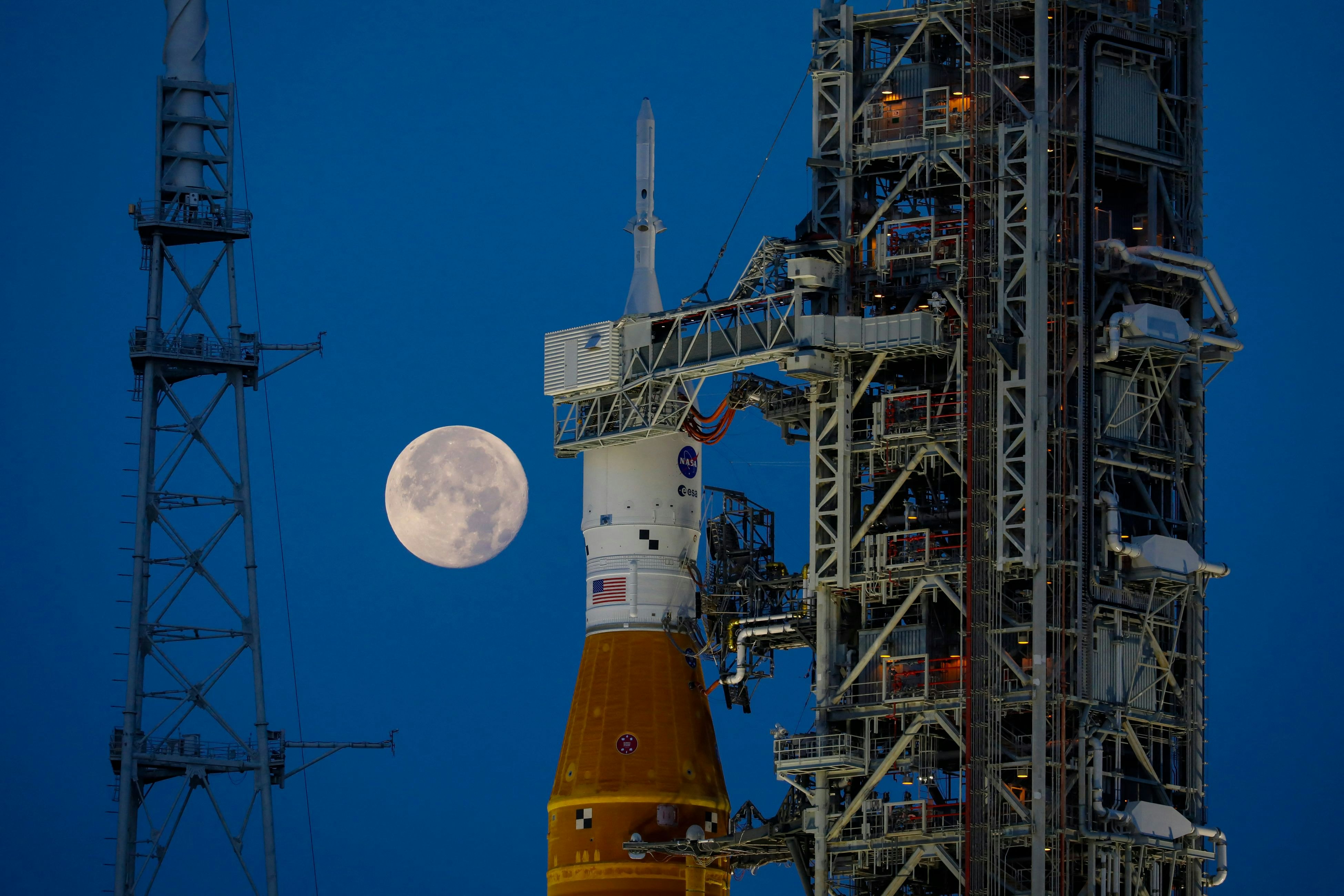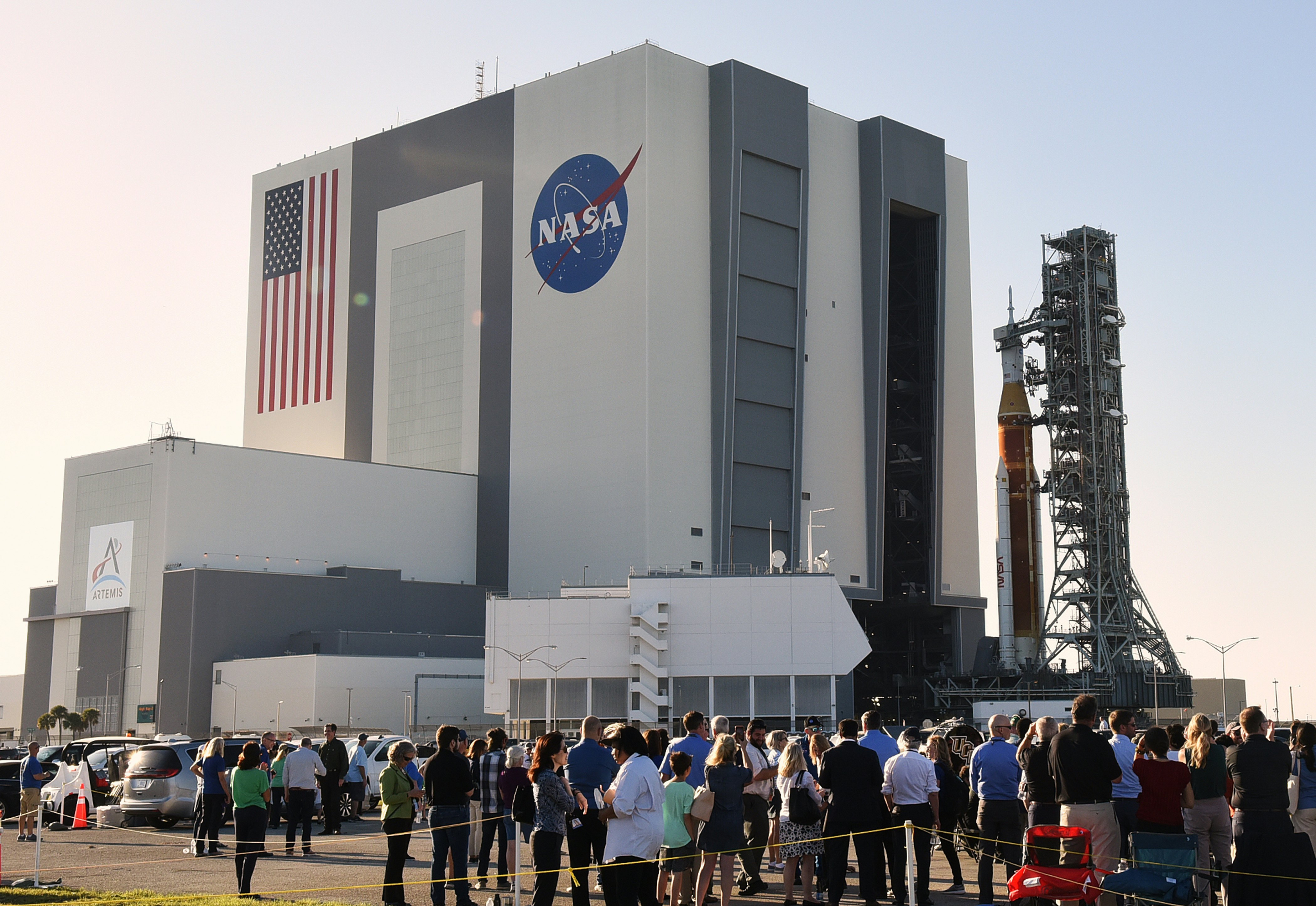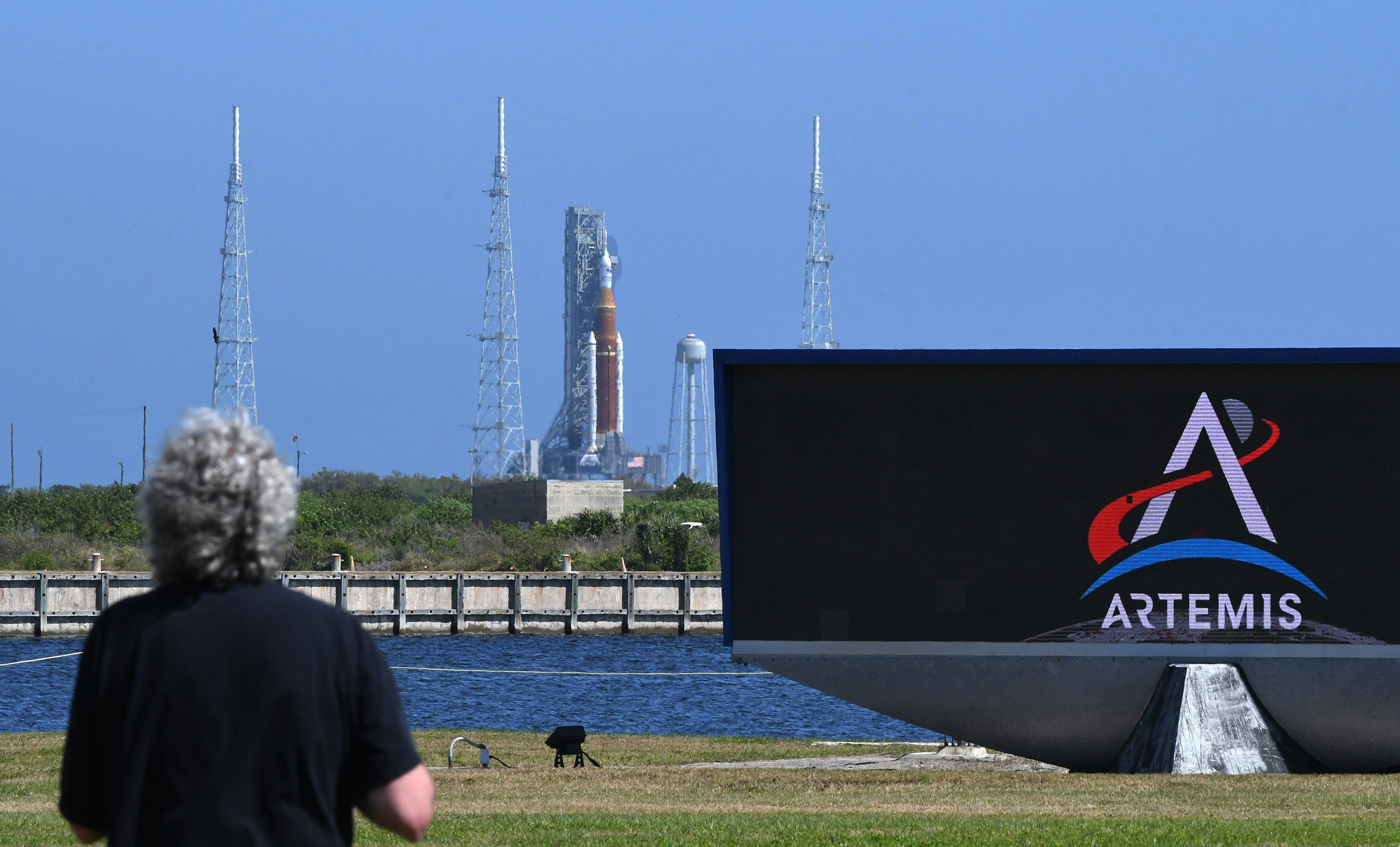
Monday’s crucial test of the Artemis 1 rocket brings NASA’s game-changing space mission one major step closer to reaching the Moon. But what comes next remains a mystery.
NASA leadership insists that the unverified portions of Monday’s wet dress rehearsal, a test designed to replicate what would happen during the final 48 hours before departure, are not a big concern. During a teleconference on Tuesday, they assured reporters that the data they’ve collected across all four wet dress rehearsals — the first three happened in April — are a wonderful sign for Artemis 1, the premiere flight of NASA’s newest push for crewed missions to the Moon.
“Now, we’re looking at the pieces of the puzzle, to decide what are the pieces that we didn’t get,” said Tom Whitmeyer, deputy associate administrator for common exploration systems development at NASA Headquarters. “But we also got an awful lot of pieces of the puzzle put together and we got a pretty good idea of what the puzzle looks like.”

Monday’s test marks the first time that all four cryogenic fuel tanks — two in the core stage of Artemis 1’s Space Launch System (SLS), and two in the upper stage just underneath the Orion capsule — got fully loaded to a “replenish” stage. This is when, after the tanks are full, the teams replace some of the ultra-cold fuel that has boiled off in the Floridian environment at NASA’s Kennedy Space Center in Cape Canaveral. This benchmark is important because it shows all the cryogenic propellant needed for a Moonshot can be successfully funneled into the tanks, capable of storing hundreds of thousands of gallons of rocket fuel.
Will there be another such test before liftoff?
NASA leadership appears to be leaning towards not having a fifth wet dress rehearsal, even though the terminal count for Monday’s test stopped short, at T-minus 29 seconds.
“The lessons and the things that we learned yesterday will be incorporated into our approach going forward for the next time that we load this vehicle,” said Charlie Blackwell-Thompson, Artemis launch director. Leadership emphasized that Artemis 1 could handle a scenario where a launch had to be suddenly canceled before liftoff.
During Monday’s test, the team expected the countdown to stop half a minute before hypothetical liftoff because, as Blackwell-Thompson explained on Tuesday, there’s a predetermined switch meant to happen at that moment, when the ground launch sequencer hands over control to the autonomous flight software on the rocket itself.

Once Artemis 1 takes the reins, it’s supposed to notice the status of the engine-conditioning system that, on Monday, experienced a leak anomaly. The issue kept it from being in the correct configuration for launch, triggering the flight software to stop the countdown. The team then brought the spacecraft to a safe configuration, performing draining operations.
“There were a couple of things that we didn’t get at terminal count,” said Blackwell-Thompson. “We’ll go look at what those are, what that means, if there’s a way to go test those, and then we’ll make some recommendations. I’m a big believer in, you follow the data. So we’ll go collect the data, and we’ll see what the data tells us.”
But if the data show all systems are a go, a fifth wet dress rehearsal may still come in handy. For instance, they want to check out some things they haven’t seen perform yet, like the heritage hardware on Artemis 1. The team saw the refurbished space-shuttle boosters on SLS put to use a few years ago at NASA’s Stennis Space Center in Mississippi, but told reporters on Tuesday that it would be great to see them perform correctly in their current configuration, before launch, to mitigate any risks. Their testing needs to happen late in the count, because the teams don’t like to use up a lot of hydrogen propellant.

When will Artemis 1 fly?
By the end of this month, NASA will likely provide an update to the launch target date and whether or not they want to do this test one more time. They’ll review the data on the most recent wet dress rehearsal first, and then take it from there.







